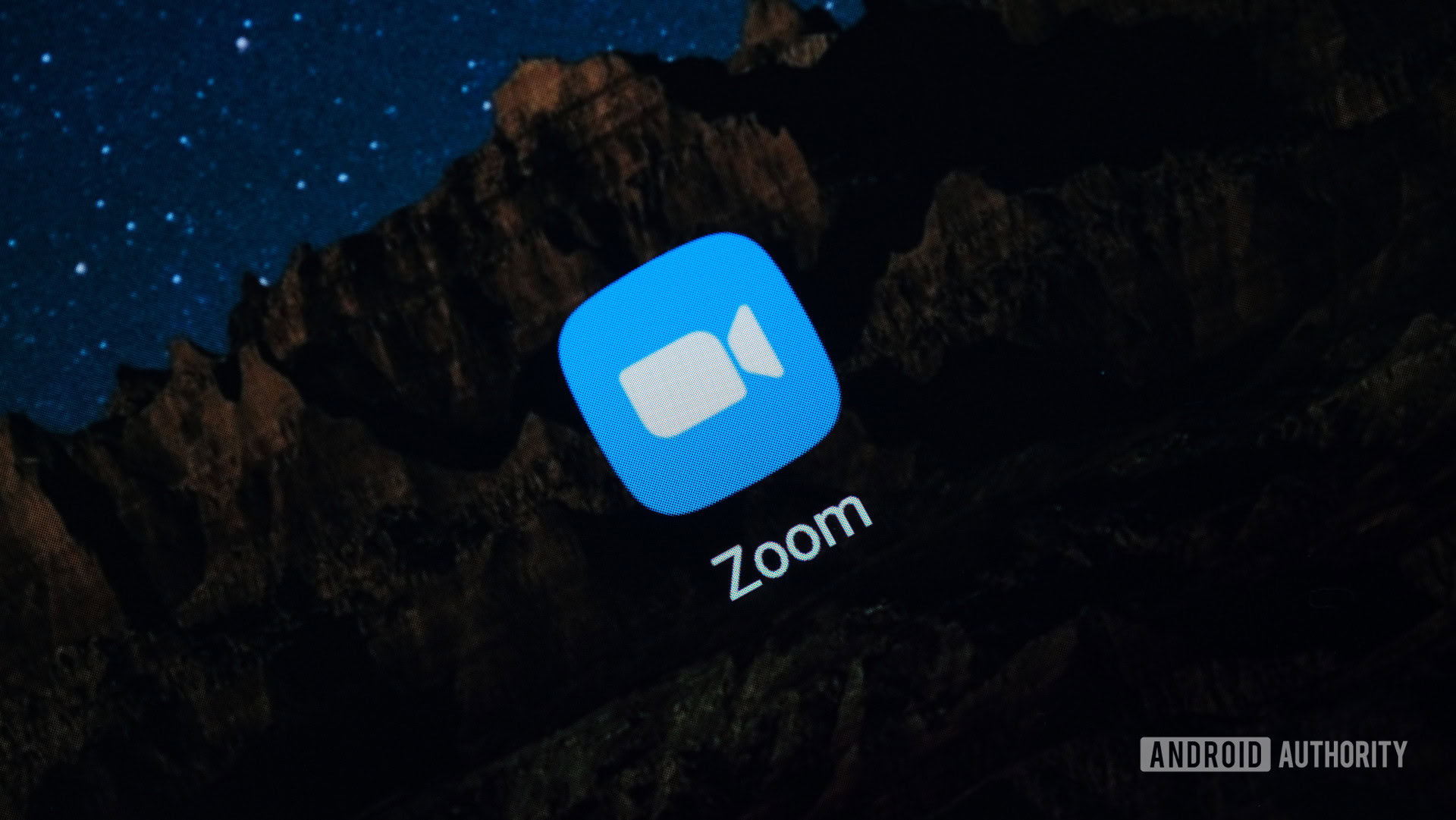Affiliate links on Android Authority may earn us a commission. Learn more.
Zoom releases another privacy update as Google bans video chat app for employees
Published onApril 9, 2020

Zoom is rolling out another minor update in response to multiple security concerns that have plagued the video conferencing software of late. The service will now hide Meeting ID numbers from the title bar so your ID won’t be exposed if you screenshot your meeting.
The change comes after UK Prime Minister Boris Johnson accidentally revealed the Meeting ID of a sensitive cabinet call through a screenshot posted on Twitter. Following the incident, many random people attempted to crash the high-level meeting, raising major concerns about the platform’s user interface.
Although Zoom has now hidden the Meeting ID from the main chat window, it can still be found by clicking on the info icon on the meeting screen.
The service has also added a new security icon to the host’s meeting controls. This combines all of Zoom’s existing in-meeting security controls into one place, including those for locking the meeting, enabling waiting rooms, and more. The new security icon is now available on all Zoom platforms (i.e. PC, web, and app versions).
Trouble with Google
Meanwhile, Google reportedly banned Zoom from its employees’ laptops on Wednesday, citing security issues.
“Recently, our security team informed employees using Zoom Desktop Client that it will no longer run on corporate computers as it does not meet our security standards for apps used by our employees,” Google spokesman Jose Castaneda told Reuters.
Google will still allow employees to use the video chat app on their phones and browsers, albeit only for personal video calls.
Zoom’s take
Given these recent security troubles, the company is getting former Facebook security chief, Alex Stamos on board as a consultant. In a blog post published on Medium, Stamos said that he was impressed by the company’s willingness to take aggressive action to become a trusted platform.
“Zoom has some important work to do in core application security, cryptographic design and infrastructure security, and I’m looking forward to working with Zoom’s engineering teams on those projects,” Stamos noted in his post.

CEO of Zoom, Eric Yuan has also apologized for the platform’s security problems.
“What I can promise you is that we take these issues very, very seriously. We’re looking into each and every one of them. If we find an issue, we’ll acknowledge it and we’ll fix it,” Yuan said on the call.
Apart from the aforementioned privacy update, Zoom also introduced some new security features on April 6. You can read all about them here.